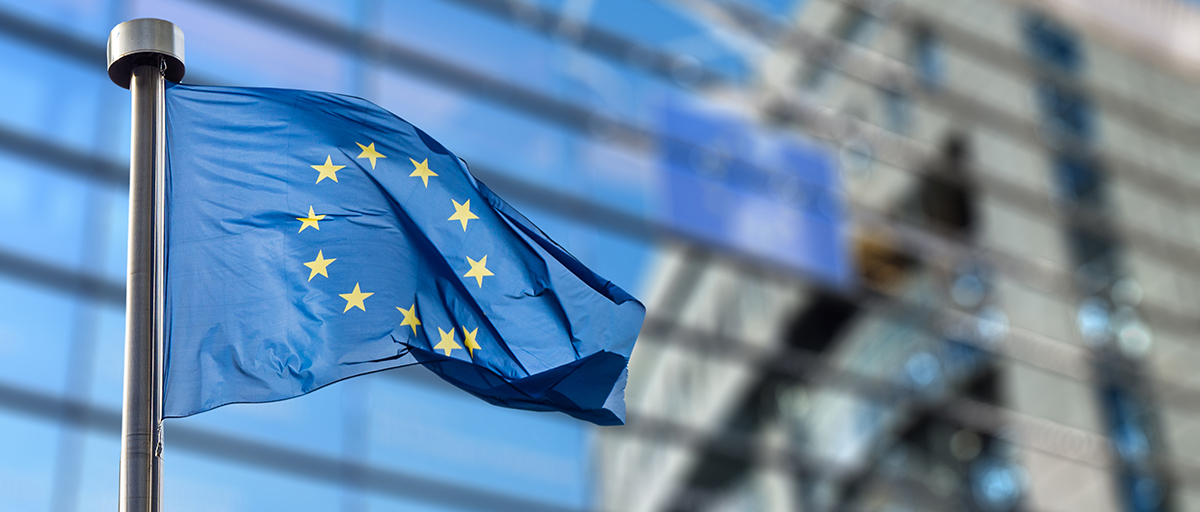Olly Russ, fund manager at Liontrust, shares his views in a short article below.
Following the Revolutionary War, the lawyer, scholar and soldier Alexander Hamilton was appointed the first Treasury Secretary of the newly-formed United States. A busy man, he also found time to start the New York Post, the US Coast Guard and the Bank of New York, as well as establish the centralised US Mint and the prototype central banks: Bank of North America and First Bank of the United States.
His ’moment’ however was assuming the Revolutionary War debts of the various states at the federal level, making the new central authority liable for repayment. This helped create a strong central authority, but equally gave the individual states a positive reason for federalising. They might have ceded sovereignty, but they also ceded their debt obligations. Liberty, after all, has a price.
The statecraft of Alexander Hamilton therefore placed the new and relatively precarious United States of America on the path to greatness. But what relation does it bear to the acrimonious European summit in July 2020 which attracted relatively little press attention in the UK?
One of the obvious flaws in the single currency has been its lack of a central treasury and a central finance minister. Hence, tax rates are not harmonised across the eurozone and the normal fiscal transfer of wealth from richer to poorer regions is inhibited. There is a type of fiscal transfer in that the richer nations are net contributors to the budget, and the poorer ones are net recipients, but it is all done through the contributions to the central EU budget at a national level. The EU has not historically been able to raise money in its own right and has therefore (unlike most national governments) been forced to live within its means. Planned spending increases meant persuading the politicians of richer nations to contribute more to people who cannot vote for them – seldom an easy task.
The newly agreed deal allows the EU to borrow up to €750 billion, with debt issuance through to 2026. Over half of this money will be allocated in non-returnable grants next year and the following year, based upon an assessment of how badly individual countries have suffered from the pandemic effect. Thereafter, assessment will be driven by the hit to GDP in 2020-21, once the figures become clear. Of the total, €360 billion will be allocated in repayable loans from the economic reconstruction fund (Next Generation EU) on favourable interest-rate terms.
Broadly, opposition was led by the ‘frugal five’ – Austria, the Netherlands, Denmark, Finland and Sweden – captained by Dutch PM Mark Rutte, who faces a strong Eurosceptic challenge in Dutch elections next year. The quintet had sought a greater proportion of loans versus grants and to tie disbursements to economic reforms. In the end, the allocation is to be done under qualified majority voting, and the hoped-for veto over national budgets did not materialise. They did however manage to get a slightly higher proportion allocated to loans rather than grants, down from the €500 billion initially posited.
But how to finance this, given virtually every world government has seen their budgets destroyed by the coronavirus crisis? Principally, the EU will raise the money in its own right, but it will be secured against future contributions from member states and is intended to be repaid by 2058. This has the advantage of being zero cost upfront to any of the assembled politicians; the debts will have to be settled by the next generation of leaders, or possibly the one after that. It is also not beyond the realms of possibility that, faced with the prospect of having to repay €750 billion, a future Commission simply decides to reissue the debt for another 40 years.
Possibly more significant, however, was the prospect of an EU-wide tax on non-recycled plastic waste and potential carbon levies on imports from countries judged as having inferior environmental standards, the proceeds of which would go to EU funds. This begins an expansion of the EU’s funding base that is independent of national governments.
At the same time, the EU sorted out its long-term budget to take account of the gaping hole left by the UK’s departure as a major net contributor and the frugal members were allowed to claim some victory by changing rebate allocations to ongoing EU membership fees. Overall, the EU agreed a €1.1 trillion budget to 2027, actually perhaps rather sooner than expected.
How significant is all this? It was a White House Chief of Staff, Rahm Emanuel, who once commented ‘never let a good crisis go to waste’, a maxim the EU has taken to its heart. The EU has long dreamed of being able to fund itself without the tiresome involvement of its constituent nations and although technically speaking the EU has issued very limited debt itself before, this does mark a crossing of the Rubicon. Importantly, the precedent has been established that the EU can issue debt in a crisis.
This will therefore be the default response in the next crisis. The EU will likely continue to issue more bonds until the market decides it won’t buy them any longer, and we are probably at least several crises away from that point, especially as no doubt even then the ECB can always print money to buy them. After all, quantitative easing (QE) used to be regarded as controversial, but the ECB announced a €1.35 trillion pandemic emergency purchase programme on top of all its other QE commitments with barely a murmur of dissent.
The scale of the EU’s current package is not insignificant – Italy and Spain stand to receive around 20% each of the funds, and although they also have to contribute, this won’t be for decades, if ever. Given Macron’s passionate demands over the need for European solidarity on the plan, it may not come entirely as a shock to discover France is the next biggest beneficiary of the scheme.
TS Lombard estimated the fiscal impulse from the grants to be in the order of 6%+ for Greece, 3%+ for Poland and 2-3% for Spain and Italy in the next year or so. But the key benefit for Italy will be in the reduction of its long-term financing rate, and the perceived corresponding reduction in eurozone break-up risk.
The EU has decided it will raise common taxation, and in theory that money should eventually flow through to Europe’s weaker regions, which should also support Italy. The EU has also suspended – for the first time – the Growth and Stability Pact using the ‘general escape clause invoked by a severe economic downturn’. This means national budget deficits are unfettered in a way we haven’t seen in euro history – it is hard to see how, once Italy (amongst others) has escaped once, it will ever be re-imprisoned.
Tax and debt-raising powers have now been accorded to the EU, and that power-ratchet tends to work one way. Technically, this is a temporary programme but as Milton Friedman said: there is nothing so permanent as a temporary government programme. The UK introduced income tax as a temporary measure to fund the Napoleonic wars and hasn’t yet quite found the time to get around to repealing it.
Whilst the frugal five may not be ecstatic about the change, President Macron’s negotiations have moved the EU much closer to a centralised treasury, which will be crucial in keeping the euro stable in the long run. The real world effect can be seen in the chart below, which shows the drop in Italian sovereign spreads over German bunds at the 10 year maturity, and is a proxy for Eurozone break-up risk. The EU has not mutualised all debt – far from it – but the effect is much the same on yields:

It has also been suggested that this does not count as a true Hamiltonian moment for Europe, since the various nations spent five days squabbling in an unedifying manner over who was paying what to whom, and therefore did not demonstrate the requisite European spirit. President Macron apparently banged his fists on the table at one stage, and accused the Dutch of behaving – quelle horreur!– like Brexit Britain. The Dutch also tried to tie disbursement of funds to the ‘rule of law’ in an apparent sideswipe at Viktor Orban’s Hungary, prompting Orban to ask why Rutte apparently hated him. So much for European bonhomie.
However, since Hamilton himself died of a gunshot wound incurred during a political duel, we are not persuaded that his era necessarily enjoyed a kinder, gentler politics, even if EU summits can sometimes be quite brutal.
The bottom line is this is a huge step-forward for European integration, such as President Macron has been pushing for since taking office, but which seemed impossible without a treaty change until the Covid-19 crisis presented itself as an opportunity not to be wasted.
Liontrust Key risks and Disclaimers
Past performance is not a guide to future performance. Do remember that the value of an investment and the income generated from them can fall as well as rise and is not guaranteed, therefore, you may not get back the amount originally invested and potentially risk total loss of capital. Investment may involve foreign currencies and may be subject to fluctuations in value due to movements in exchange rates.
The information and opinions provided should not be construed as advice for investment in any product or security mentioned, an offer to buy or sell units/shares of Funds mentioned, or a solicitation to purchase securities in any company or investment product. Always research your own investments and (if you are not a professional or a financial adviser) consult suitability with a regulated financial adviser before investing.
Issued by Liontrust Fund Partners LLP (2 Savoy Court, London WC2R 0EZ), authorised and regulated in the UK by the Financial Conduct Authority (FRN 518165) to undertake regulated investment business. This document should not be construed as advice for investment in any product or security mentioned, an offer to buy or sell units/shares of Funds mentioned, or a solicitation to purchase securities in any company or investment product. Examples of stocks are provided for general information only to demonstrate our investment philosophy. It contains information and analysis that is believed to be accurate at the time of publication, but is subject to change without notice. Whilst care has been taken in compiling the content of this document, no representation or warranty, express or implied, is made by Liontrust as to its accuracy or completeness, including for external sources (which may have been used) which have not been verified. It should not be copied, faxed, reproduced, divulged or distributed, in whole or in part, without the express written consent of Liontrust. Always research your own investments and (if you are not a professional or a financial adviser) consult suitability with a regulated financial adviser before investing.
MeDirect Disclaimers:
This information has been accurately reproduced, as received from Liontrust Fund Partners LLP. No information has been omitted which would render the reproduced information inaccurate or misleading. This information is being distributed by MeDirect Bank (Malta) plc to its customers. The information contained in this document is for general information purposes only and is not intended to provide legal or other professional advice nor does it commit MeDirect Bank (Malta) plc to any obligation whatsoever. The information available in this document is not intended to be a suggestion, recommendation or solicitation to buy, hold or sell, any securities and is not guaranteed as to accuracy or completeness.
The financial instruments discussed in the document may not be suitable for all investors and investors must make their own informed decisions and seek their own advice regarding the appropriateness of investing in financial instruments or implementing strategies discussed herein.
If you invest in this product you may lose some or all of the money you invest. The value of your investment may go down as well as up. A commission or sales fee may be charged at the time of the initial purchase for an investment and may be deducted from the invested amount therefore lowering the size of your investment. Any income you get from this investment may go down as well as up. This product may be affected by changes in currency exchange rate movements thereby affecting your investment return therefrom. The performance figures quoted refer to the past and past performance is not a guarantee of future performance or a reliable guide to future performance. Any decision to invest should always be based upon the details contained in the Prospectus and Key Investor Information Document (KIID), which may be obtained from MeDirect Bank (Malta) plc.





